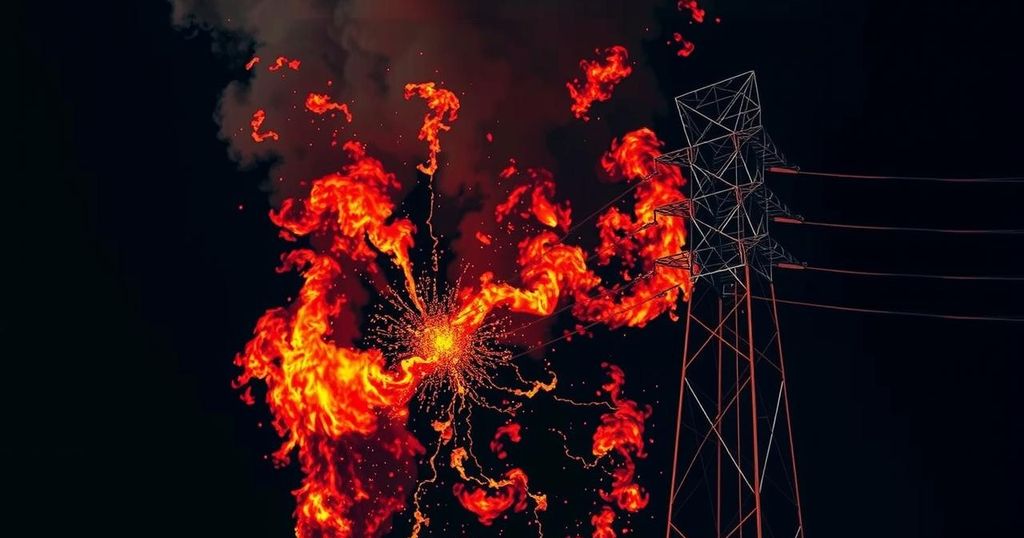Zambia and Zimbabwe Experience Widespread Power Outages Amid Energy Crisis
Zambia and Zimbabwe experienced nationwide blackouts on Sunday evening, attributed to disruptions in power supply linked to drought conditions affecting the Kariba Dam. While emergency measures were successfully implemented in hospitals, the majority of the country remained without power for an extended period. The ongoing energy crisis, characterized by only seven hours of daily electricity, exacerbates the need for alternative energy solutions as water levels in the dam dwindle.
Zambia and Zimbabwe experienced nationwide blackouts simultaneously late on a Sunday evening, as confirmed by local authorities. This disturbance in power supply occurred while both nations have been enduring severe electricity shortages for months, receiving merely seven hours of electricity per day due to the ongoing drought that has critically impacted the water levels at the Kariba Dam, the primary source of hydropower for both countries. The blackout, reported at around 20:15 hours in Zambia, prompted a response from the Zambian government, which announced that no serious incidents occurred at the University Teaching Hospital, as backup systems functioned effectively. Power was restored to the hospital within 30 minutes, although it remains unclear when the rest of Zambia regained full electricity supply. The Zimbabwe Power Company reported that the blackout, initiated at approximately 8:25 PM, resulted from a significant disturbance within the national grid, although by morning, most load centers had resumed normal operations. The Kariba Dam, which lies on the border of the two nations, recorded water levels critical for electricity generation at only 2.40 percent as of mid-November, compelling residents to seek alternative power sources such as solar energy.
Zambia and Zimbabwe are currently grappling with a prolonged energy crisis due to an ongoing drought that has significantly lowered water levels in the Kariba Dam, their principal hydropower source. Over the past several months, both countries have faced inadequate electricity supply, averaging just seven hours a day, which has severely affected their economies and daily lives. The recent nationwide blackouts highlight the urgency of addressing the deficits in their power generation systems and the necessity for alternative sources of energy as they navigate these challenges.
The simultaneous blackouts in Zambia and Zimbabwe underscore the pressing energy crisis facing both nations, caused largely by diminishing water resources at the Kariba Dam. While immediate effects at critical infrastructure such as hospitals were managed without any reported critical incidents, the incident further illustrates the fragility of their energy supply. The governments must expedite investigations and implement measures to prevent future disruptions, and the increasing adoption of renewable energy may offer a viable path toward energy security for the affected regions.
Original Source: www.barrons.com




Post Comment